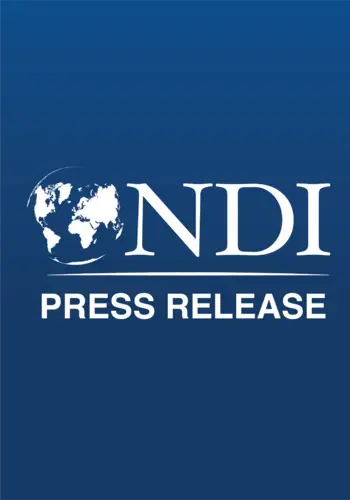Toyin Awesu: [email protected]
+1 202 728-5500
Adam Nelson: [email protected] (Bangladesh contact until October 18)

Resources
Dhaka, Bangladesh – Heading into Bangladesh’s elections for the Jatiya Sangsad (national parliament), a pre-election delegation of the National Democratic Institute (NDI) found that, while Bangladesh has several fundamental elements in place for holding credible elections, including a tradition of political pluralism and strong public support for democratic principles the polls will take place amid a high degree of political polarization, heightened tensions and shrinking political space.
From October 5 - 11, the delegation met with: officials in the Prime Minister’s office; party leaders from across the political spectrum; the Election Commission; civil society representatives, including citizen election observer group leaders; women members of parliament and political activists; media representatives; former government officials; business leaders; and representatives of the international and diplomatic communities.
The delegation was encouraged by Bangladesh’s vibrant media, active civil society, and growing youth and women’s activism. Concerning women, Farahnaz Ispahani, former Member of Parliament, Pakistan and Woodrow Wilson Center - Global Fellow, noted that “women play an active role in Bangladesh’s elections as voters, campaign activists, candidates, observers, and pollworkers. However, they still face a number of cultural and structural barriers in participating equally.”
The delegation heard significant concerns from election observers and opposition representatives about the Election Commission’s plans to deploy electronic voting machines in some locations. Media representatives and civil society, including citizen election observers, report intimidation by law enforcement bodies. In addition, arrests of political activists and critics of the government, as well as the passage of the controversial Digital Security Act, is fueling grave concerns that the country’s longstanding commitment to democratic norms may be at risk.
“The upcoming elections provide a critical opportunity to dispel concerns about closing space and reaffirming Bangladesh’s commitment to a democratic and competitive political process,” Karl Inderfurth, former Assistant Secretary of State for South Asian Affairs, said. “If the government and opposition parties enter into a genuine dialogue,’ Peter Manikas, Regional Director for NDI’s Asia programs noted, “we believe an agreement can be reached on the conditions necessary for holding peaceful, credible, inclusive, and transparent elections in which all political parties can compete on a more level playing field.”
In its statement, NDI’s delegation offered a number of recommendations that can be addressed ahead of the upcoming elections. These include, among others:
The delegation also urges the international community to be as generous and forthcoming as possible to Bangladesh and the United Nations in addressing the humanitarian needs of the Rohingya refugees. Left unattended and unresolved, refugee crises can have long-term political and electoral consequences.
The delegation is deeply grateful to all those with whom it met and who shared their views freely. In addition, the delegation emphasizes that it does not seek to interfere in Bangladesh’s election process and recognizes that, ultimately, it will be the people of Bangladesh who will determine the credibility and legitimacy of their elections and the country’s democratic development.
Members of NDI’s delegation included: Ambassador Karl Inderfurth, former Assistant Secretary of State for South Asian Affairs and current NDI board member; Honorable Farahnaz Ispahani, author and former Member of Parliament, Pakistan; and Peter Manikas, Senior Associate and Regional Director for NDI’s Asia Programs. The delegation was joined by Michael McNulty, NDI Elections Advisor and Adam Nelson, NDI Senior Program Manager for Asia.
###